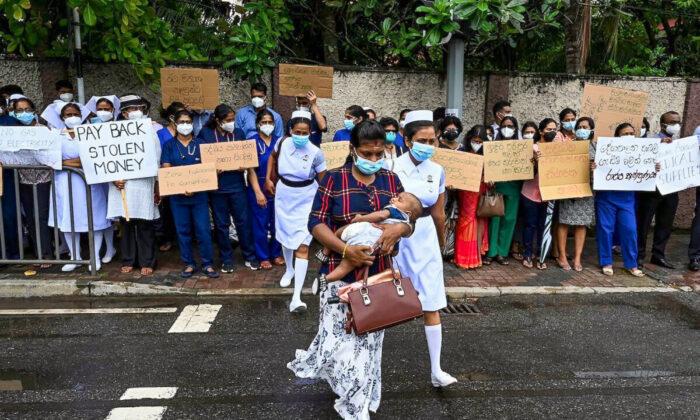Australia will provide Sri Lanka with $50 million (US$34.5 million) dollars of development assistance to help meet urgent food and healthcare needs as it battles its worst economic crisis in 70 years.
“Sri Lanka currently faces its worst economic crisis in seventy years, leading to shortages of food, medicine and fuel, ” Wong said. “Australia has a close and long-standing relationship with Sri Lanka. Not only do we want to help the people of Sri Lanka in its time of need, there are also deeper consequences for the region if this crisis continues.”
Sri Lankan Economy Facing Complete Collapse
News of the financial aid comes after Sri Lanka’s new Prime Minister Ranil Wickremesinghe told Parliament on June 22 that the country faced collapse.“We are now facing a far more serious situation beyond the mere shortages of fuel, gas, electricity, and food. Our economy has faced a complete collapse,” he said.
“It is no easy task to revive a country with a completely collapsed economy, especially one that is dangerously low on foreign reserves.”
Sri Lanka is currently in discussions with India, China, and Japan for loan packages to help boost the country’s foreign reserves but Wickremesinghe said there were challenges because each country had its own system for granting loans.
“We are working towards resolving these and fostering friendly relations once again,” he said.
The government also will seek help from the United States, with representatives from the U.S. Treasury Department visiting Sri Lanka next week.
Thousands of Sri Lankans have taken to the streets to protest the government’s mishandling of the country’s economic crisis, leading to the resignation of then-Prime Minister Mahinda Rajapaksa on May 9.
Sri Lanka a Lesson to the World on Food Shortage Risks
The collapse of Sri Lanka’s economy comes as the world deals with grain and fertiliser shortages, as well as soaring fuel prices as a result of the Ukraine-Russian conflict.Matt Dalgliesh from Thomas Elder Markets previously told The Epoch Times that countries like Sri Lanka are in a precarious position.
He warned that developing countries could easily see mass instability and civil disobedience erupt, especially economies like Sri Lanka where there is a heavy reliance on imported food and goods.
“Countries that are on [Australia’s] doorstep, like Indonesia that have got a huge population striving for self-sufficiency in terms of their food security they could have issues, but we have got countries probably further away in the Middle East and North African areas ... that are susceptible to food insecurity,” he said.
“Some of those developing countries that are less food secure, that rely on a lot of meat imports, where the consumer can spend 50 to 60 percent of their income on food-related matters, the risk of food insecurity is far more significant and the model what it leads to is like what we are seeing in Sri Lanka.”




